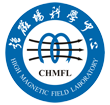通知公告
(1.11)学术报告:Hippo signaling in the oxidative-stress-induced neuronal cell death
题 目:Hippo signaling in the oxidative-stress-induced neuronal cell death
报告人:袁增强 研究员 (中国科学院生物物理研究所)
邀请人:刘青松 研究员
时间:2013.01.11(周五). 上午 9:30
地点:强磁场中心 201 会议室
报告人介绍:袁增强博士是2007年加入中国科学院生物物理研究所,任研究员,博士生导师, 2011年国家基金委“杰出青年”,2011年中科院“十大杰青”,国家自然基金委员会二审专家。他课题组主要利用动物疾病模型和分子生物学手段及信号转导技术来研究并阐明上述疾病发生发展的分子机制,为临床疾病的诊疗提供理论基础。 共发表论文26篇,分别刊登在Science、Cell、Neuron, J Neuroscience、J Biol Chem 等国际著名杂志。
报告摘要: Oxidative stress influences cell survival and homeostasis, but the mechanisms underlying the biological effects of oxidative stress remain to be elucidated. The protein kinase MST1 plays a major role in oxidative stress-induced cell death in primary mammalian neurons. However, the mechanisms that regulate MST1 in oxidative stress responses remain largely unknown. In the present study, we demonstrate that the protein kinase c-Abl phosphorylates MST1 at Tyrosine 433, which triggers the stabilization and activation of MST1. Inhibition of c-Abl promotes the degradation of MST1 through CHIP-mediated ubiquitination, and thereby attenuates cell death. Oxidative stress induces the c-Abl-dependent tyrosine phosphorylation of MST1 and increases the interaction between MST1 and FOXO3, and thereby activates MST1-FOXO signaling pathway, leading to cell death in both primary culture neurons and rat hippocampal neurons. We also found that MST2, the MST1 homologue, is phosphorylated in the N-terminus and activated by c-Abl upon oxidative stress. The identification of the c-Abl tyrosine kinase as a novel upstream activator of MST1 suggests that the c-Abl-MST1 signaling cascade plays an important role in cellular responses to oxidative stress.



